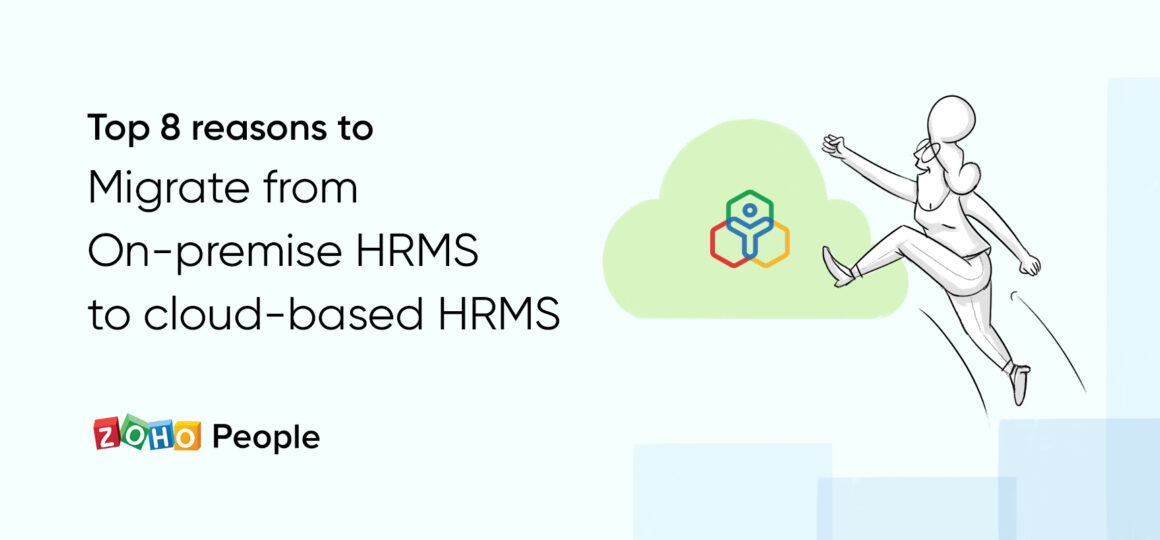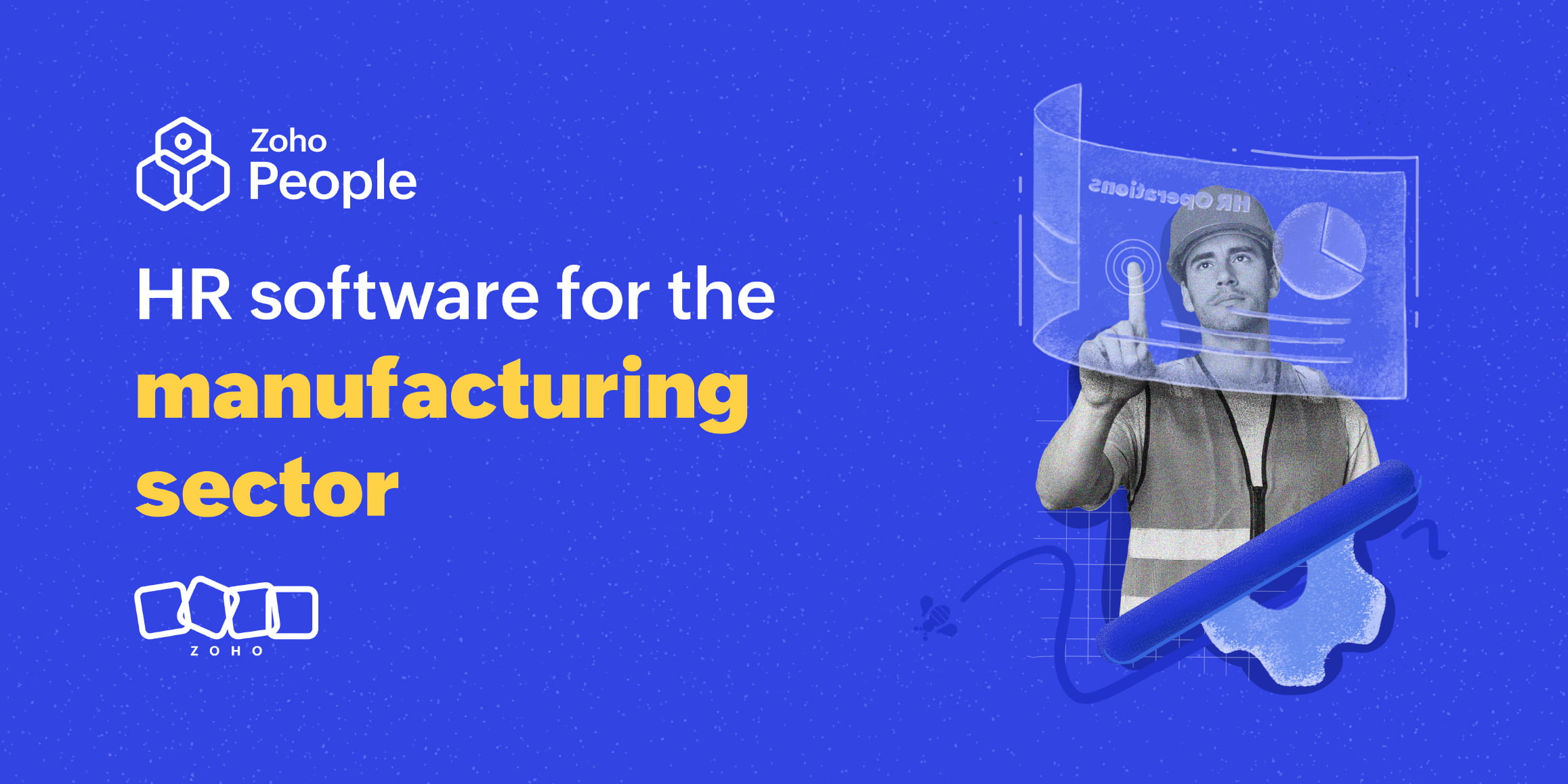- HOME
- More
- Employee Engagement
- 8 reasons to switch from on-premises HR software to cloud-based HR software
8 reasons to switch from on-premises HR software to cloud-based HR software
- Last Updated : January 24, 2025
- 4.9K Views
- 4 Min Read

Having on-premises software requires you to install the program in your computer or server, and that can be tiring for both you and your employees. According to the study “Diving into Cloud services,” almost 93% of the surveyed organizations are using some form of cloud-based service to run their business. This shows the rapid shift towards cloud-based software, likely because it provides convenient access through a web portal. When it comes to HR software, cloud-based systems provide more flexibility in the workplace, paving the way for trends like remote work, Bring Your Own Device policies, and more. Here we have listed the 8 reasons why your organization should move from on-premises HR software to a cloud-based HR software! Before that, we'll take a quick look at what each software system means so you can make an informed decision.
What is on-premise HR software?
An on-premise HR software is an HR solution often hosted physically at your workplace in your company's servers and computer systems. As an organization managing on-premise HR software, you would be responsible for its installation, maintenance, and upgrades.
What is cloud-based HR software?
Cloud-based HR software is often hosted on remote servers, typically a cloud infrastructure, thus allowing organizations to manage their HR activities from anywhere, at any time as long as there is a stable internet connection. This particular HR software is often managed by a third-party vendor who would be responsible for its maintenance, updates, and scalability.
Why should you move from on-premise HR software to cloud-based HR software?
Easy to install and maintain
While installing on-premises software, you’re forced to use your own organization’s infrastructure since the system requires physical installation at your location. Installation and setup can take a substantial amount of time, interfering with your daily business operations. Your organization will also be responsible for maintaining it. On the other hand, cloud-based HR software is easy to install and use because it’s hosted over the Internet. The complete installation will be taken care of by the software provider, and after that, it’s much like renting the service. All support and customer care will be provided by the vendor. The only requirement to use it is a stable internet connection.
Cost-effective
The subscription payment model of a cloud-based HR software allows you to pay only for what your organization uses. Pay for what you want, when you want, and avoid huge licensing costs. The costs of upgrading are low as well. For on-premises software, you have to pay for the software license, installation, server, training, upgrades, security patches, and maintenance.
Easy to access
One of the biggest advantages of a cloud-based HR software is its accessibility. With proper internet connectivity, a cloud-based HR software can be accessed from anywhere at any time and through any device. While working remotely, your employees can easily mark their attendance, record their working hours, access essential documents, apply for time off, and more. This is impossible with on-premise HR software as it requires your employee’s physical presence to perform HR operations.
Increased data security
Managing your employee database is one of the most vital functions of the HR department. With on-premise HR software, data security requires several policies, regular backups, and trained experts. Without regular backups, retrieving any lost data is very tough. A cloud-based HR software ensures high-level data security as most systems are now compliant with security standards and regulations. Software providers take care of the data backup, so you don’t have to worry about losing your important information.
Greater customization
A cloud-based HR software provides a personalized approach, allowing you to pick the features necessary to manage your workforce. As organizations are becoming more dynamic, this will also help you to improve your organization’s HR operations according to the changes. The customization can be done easily with the software provider’s support. With on-premises HR software, your IT department has to do much of the work, which can be time-consuming and tiring.
High scalability
The ability to scale is one of the primary features that make a cloud-based HR software more desirable. With cloud-based software, you don’t have to worry as you increase or decrease your organization’s capacity. On-premises HR software can only support an increase or decrease in your organization’s capacity to a certain limit. If it exceeds the limit, your organization will have no choice but to invest in new software.
Easy to integrate
The ability to integrate with third-party applications is a key aspect to consider as it allows you to perform multiple HR operations from a single platform. On-premise HR systems support third-party integrations, but adding them after implementation can take a lot of time and money. With a cloud-based HR software, third-party integrations can be enabled during any stage at low cost.
Increased employee engagement
HR operations play a huge role in improving the engagement of your workforce. Not having an HR software, which empowers employees to have autonomy over their information, can hurt employee engagement. A cloud-based HR software allows employees to access all their vital information and communicate with their peers easily. Providing 24/7 access to HR operations makes employees feel trusted and motivated.
These days, a cloud-based HR software has an edge over on-premises HR software. A cloud-based HR software can save your employees a substantial amount of time as the maintenance is taken care of by the service provider. It’s also cost-effective and accessible to employees.
Also Read:Here's how cloud-based HRMS is transforming HR operations
 Tarika
TarikaContent Specialist at Zoho People


